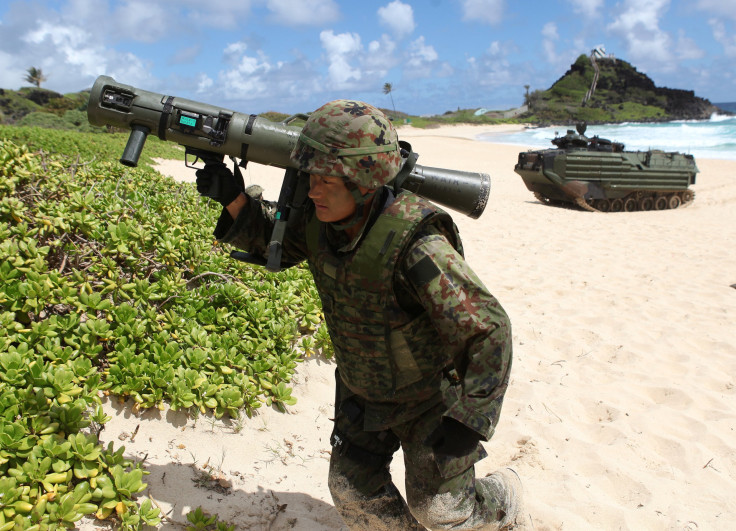Possible North Korea-Japan War? After DPRK Missile Launch, Tokyo On High Alert For More

Japan is heightening is putting its military on extreme heightened alert following North Korea test-firing a ballistic missile last week that landed in Japan's exclusive economic zone waters. The Japanese armed forces were not only told Monday to be on the alert for any more North Korean missiles but to be ready to shoot them down, as well, Reuters reported.
The order puts Japan's military on an increased scale of alert for the next three months, meaning the country — which may be preparing for war — expects that another missile launch in the next 90 days is very likely.
When North Korea fired a missile Wednesday and it landed in Japan's sovereign waters after traveling about 620 miles, CBS News reported Japan's Prime Minister Shinzo Abe didn't hesitate to call the act one of obvious and "unforgiveable" provocation.
"It imposes a serious threat to Japan's security and it is an unforgivable act of violence toward Japan's security," Abe said.
North Korea test-fired two missiles last week in part because South Korea was planning to accept in 2017 an advanced U.S. missile defense system. One of the missiles exploded shortly after being launched, while the other landed in Japan's waters.
It was not lost on the U.S. — a staunch ally of Japan — that the launch was far from the first in the recent past. "it’s worth noting that since that the last time we met here to discuss North Korea’s actions in late June, North Korea has launched ballistic missiles on other occasions: on July 9 from a submarine, and two more on July 19," U.S. Ambassador Samantha Power to the United Nations said Wednesday during a press briefing.
The news of Japan's heightened military alert comes as the country's emperor hinted that he may have to step down because poor health was threatening his ability to rule. Japan's law strictly forbids the abdication of an emperor, but Monday's announcement from Emperor Akihito may have been issued in part to help prepare citizens and the government that an exception may need to be made, the Guardian reported.
“I am concerned it may become difficult for me to carry out my duties as the symbol of the state with my whole body and soul as I have done so far,” he said.
© Copyright IBTimes 2024. All rights reserved.












